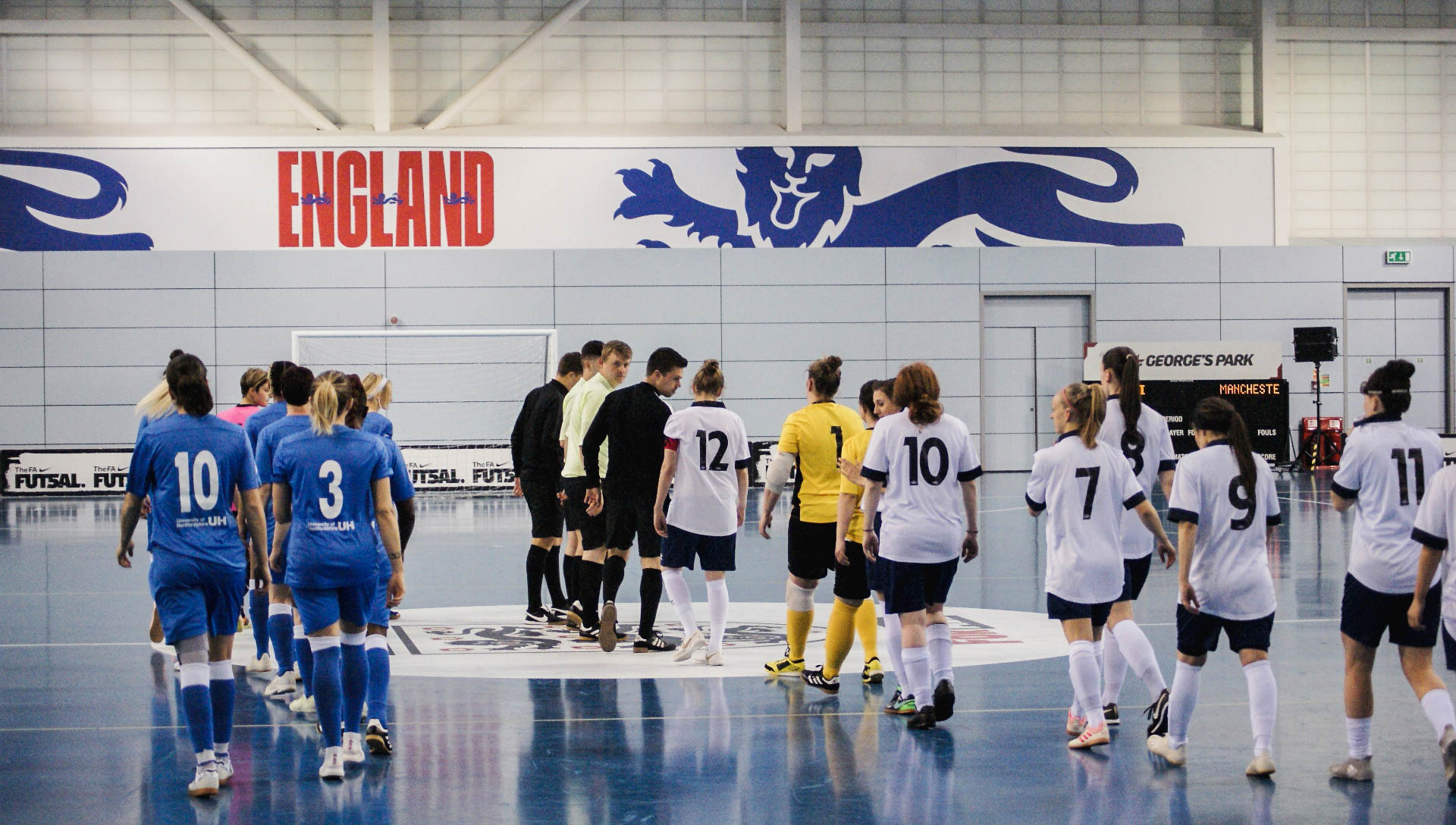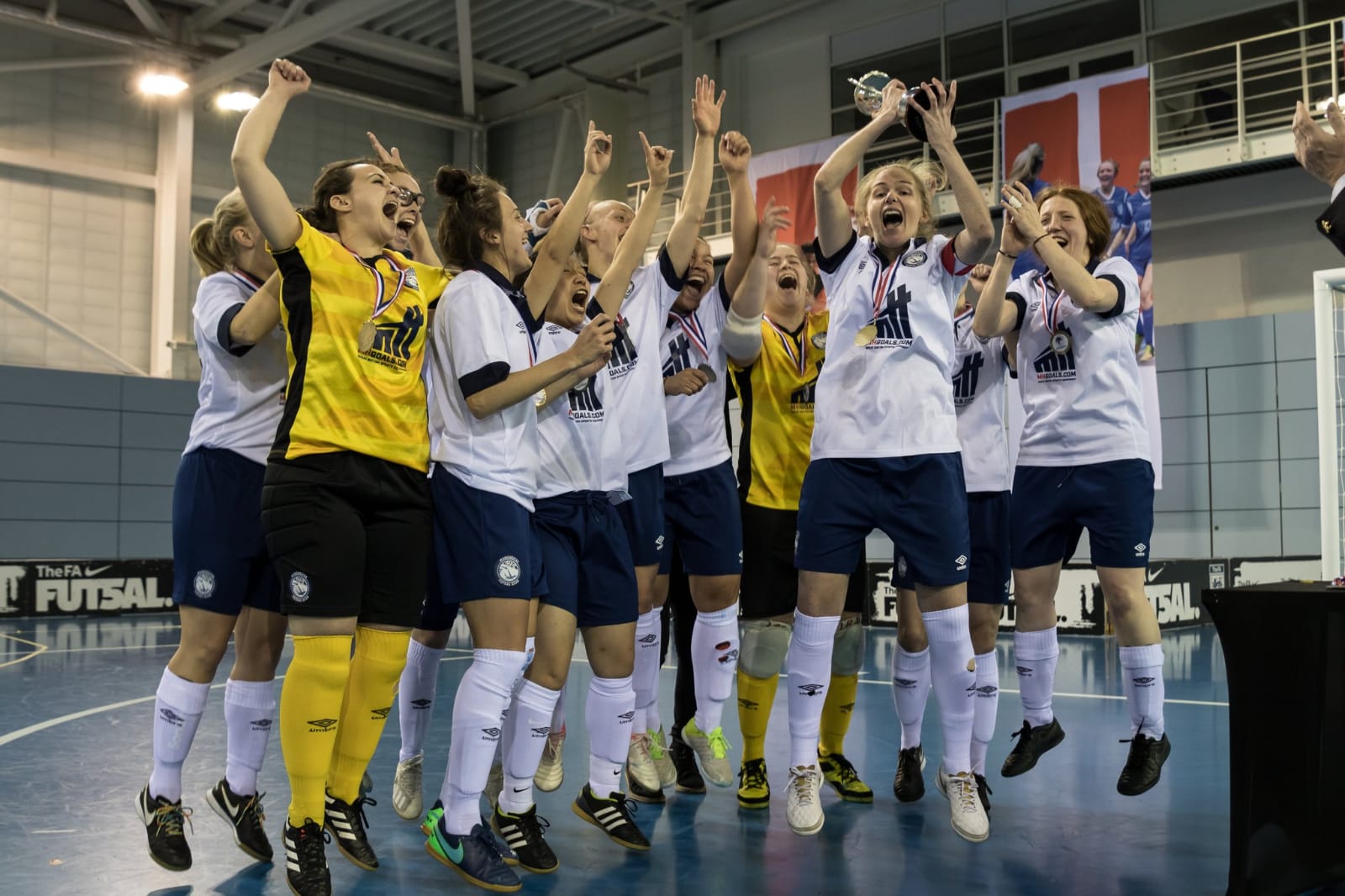We reside in the nation that invented the game of football: a place where everyone is obsessed with the 11-aside format. We know that we cannot compete with this, but we don’t want to. We want to forge our own identity.
Oftentimes, we have had to sell our sport to an apprehensive and indifferent Football Association; relying on the fact that futsal can be marketed as a development tool for footballers looking to improve their attributes.
But futsal is not simply a machine that churns out a conveyor belt of better footballers. Futsal is its own sport, and we must be bold and not shy away from this fact. We want our own pathway, and we deserve it.
Our aim is not to take anything away from football; but nor is it necessarily to add anything, either. We are in our own lane, and the two sports can coexist peacefully, side-by-side.
>>> Doug Reed: Futsal is not the enemy
It is somewhat unfortunate that the initial sprouting of women’s futsal in England has coincided with a crucial moment in the growth of women’s football. The English FA’s recent decision to defund our sport does beg the question as to whether some within the organisation perceived futsal as a threat. If so, this reasoning would be faulty and not evidenced-based at all when you look around the world at successful footballing nations and their relationships with futsal. One only has to look to nations such as Brazil, Spain, Portugal, and Argentina, to know that you can be successful in both sports.

If the initial impulse within our FA was to stifle the growth of women’s and girls’ futsal to preserve the growth of women’s football, this would be awfully misguided and shortsighted.
More emphasis on futsal does not mean less on football. This is not slices of cake.
If women’s and girls’ futsal is fairly resourced in England, this does not mean that there will suddenly be a mass exodus of players leaving football for futsal. It just does not work like this.
Let me explain why.
During my involvement in futsal, I have observed two sets of players: those who adapt naturally to futsal and fall in love with it; and those who quickly realise that they are footballers and who disappear. Even of those who start playing futsal seriously, many continue to also play football.
And this is what we should all want: women and girls having the option of maximising their talents, wherever they may lie.
>>> Leanne Skarratt: I urge those feeling discouraged to not give up on futsal!
This is how we get the best out of players; and this should be how we define success. The dropout rate amongst young female footballers in England is high. Perhaps the numbers don’t have to be this large. If even a small fraction of these players remain in their kits by turning to futsal, it should be something that the English FA embraces if it is truly serious about the health, fulfillment, and best interests of our women and girls.

Growing any new sport is challenging, but my feeling is that futsal has had it harder than most as a result of being a variant of football. This association is not something we can escape, but we have to step out of the shadows and stand firm in our identity as a female futsal community.
Fear and ignorance of new things that we don’t quite understand is a ubiquitous feature of the human condition. We are seeing this as futsal grows in England.
Some of us belong to the futsal community – and some of us belong to both the football and futsal communities. It is our collective duty to make sure that we send the message that there is nothing to fear and that futsal has an important place in the sporting landscape of this country.
The futsal tsunami has already hit our island. Whether our FA rides the wave or not, will not matter as much as staying true to who we are as a community.
>>> Unsecure Future of Futsal in England
>>> Petitions Demand Change in English Futsal Governance
>>> 4+1 easy ways how can you support FutsalFeed





